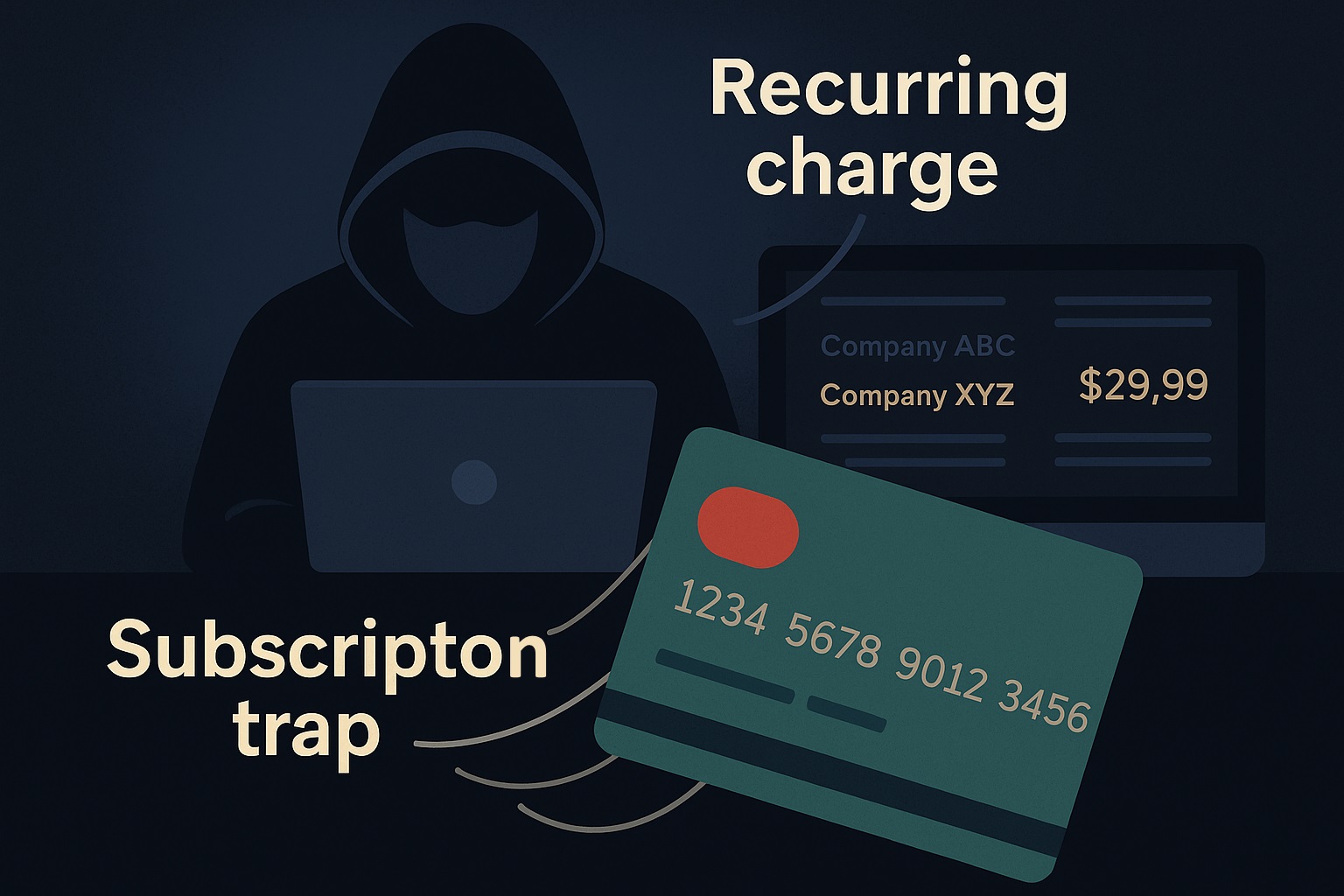Many internet users have been surprised to find mysterious charges on their credit or debit card statements. Sometimes it’s only a few dollars a month, but over time it adds up. The strange part? The charge often comes from a company name you’ve never heard of.
Why It Happens
The reason is that many online services — VPNs, dating apps, or free-trial sites — don’t bill directly under their brand. Instead, they use third-party billing companies or umbrella corporations that manage multiple websites. On your bank statement, you don’t see “SuperVPN.com” but rather something like “XYZ Billing Ltd.” or agacalls.com like in author’s case. Some companies even operate dozens of websites but funnel payments through the same shadowy processor.
A Common Business Model
This structure lets companies:
- Confuse consumers (so you don’t recognize or dispute the charge quickly).
- Spread risk across multiple brands (if one site gets too many complaints, another takes over).
- Lock users into auto-renewing subscriptions after a free trial.
Case Study: agacalls.com
One company, BillingSupport, which has been repeatedly reported for misleading billing practices. Customers often discover charges on their statements from this company — even though they never remember subscribing to anything under that name.
When the user (victim) personally contacted the company about an unwanted subscription, their “support process” was suspicious. They asked me to provide:
- full name,
- email address, and
- thee last 4 digits of card number.
Only after supplying this information did they claim they had “found my account” and unsubscribed account (they mentioned ACTIVATEVPN.com, although the user had no prior knowledge of such a site). But in reality, this raised serious concerns. Instead of confirming what they already had, it felt like they were using this tactic to collect more personal data.
This is a classic red flag: a company that already charges your card should already know your email or partial card details. Asking you to “verify” them may be more about building a richer profile than helping you cancel. Also the website agacalls.com looks very suspicios. Only one page with big label in the center like “PRESS ONLINE CHAT BUTTON” and online chat in the corner. Online chat that responds immidietly. Come on! We are not in the kidners garden.
Impact on Consumers
Because the billing name is obscure, consumers often ignore small recurring payments for months. By the time they notice, hundreds of dollars may have been taken. Cancelling is often difficult, and customer service may be unresponsive.
How to Protect Yourself
- Always read the fine print before starting a “free trial.”
- Search the billing descriptor from your statement online — it often reveals the source.
- Use virtual or disposable cards for trial signups.
- Dispute unauthorized charges with your bank immediately!!! In 99 cases it works.
Conclusion
The online world has made it easier than ever for companies to hide behind complex billing structures. Consumers must stay alert, review their statements regularly, and push back against shady practices. Transparency in billing should not be optional.







